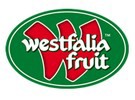Westfalia Fruit is the world’s largest private investor in avocado research. The company’s research programme, based in South Africa, consists of a team of inhouse researchers, scientists and technicians who are aligned to several key academic research programmes globally. The team focus on three key areas to drive the industry forward: rootstocks, reducing inputs and continuous development and exploration. The team has recently welcomed Solomon Ntladi, a respected rootstock breeder based in South Africa.
For more than 40 years, Westfalia has been researching disease-tolerant clonal rootstocks to develop superior avocado tree health and yields, in varying local conditions, that require minimal external inputs. The work demands significant investment as it can take 35 years to commercially develop new varieties. The process includes several years of planting trials in both nursery and orchard environments, with results continuously monitored throughout. With its diverse growing footprint, nursery and orchard trials are also duplicated across each growing area as the local natural environment is a key consideration.
“We’ve had ongoing success with existing avocado rootstocks such as Latas® and Dusa®, which offer high root-rot tolerance and higher yields. Dusa also offers some salinity tolerance and it’s been the top seller among clonally propagated rootstocks worldwide with more than 1.5 million Dusa trees sold annually,” said Johnathan Sutton, Group Safety and Environment Executive at Westfalia.
“Leola™ and Zerala™ are new rootstocks that were introduced to the market in 2020. With these, Westfalia can support growers with higher yielding rootstocks developed to suit a range of specific growing conditions around the world. Zerala is the rootstock of choice for growing in areas facing salinity challenges. Ongoing trials in Peru are showing very positive outcomes and the first trees are scheduled to be planted in 2024,” Johnathan continued.
Westfalia’s work also includes research into reducing synthetic fungicides in the harvesting process, with a research focused on breeding plant genetics to be more tolerant to pests and diseases, as well as well as plant based treatments.
“These plant based treatments are natural fruit sterilants like mineral or plant based oils such as thyme or citrus oil. We currently have four or five different trials running using natural fungicides across Westfalia’s global operations in Europe and beyond,” explained Johnathan.
“These trials are a good demonstration of how we approach research at Westfalia, based on our founder, Hans Merensky’s philosophy. In a three step process we carry out thorough research, take that into demonstration trials and then move to commercialization if the first two steps are successful. There is no place in our business for new technology or science without thorough and measured testing. This formula helps us to achieve success!”
For more information:
Danielle Willems
Westfalia Fruit
Tel.: +27 011 076 8358
danielle.willems@westfaliafruit.com
